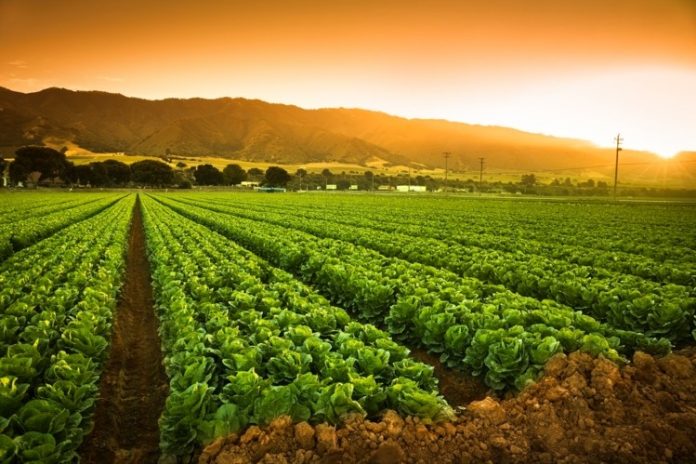Do you want to become job seeker or an employer of labour before or after graduating from higher institution of learning?. Are you a retired worker and you want to make good use of your retirement benefit rather than marrying another wife or buying a car that may likely consume a huge chunk of your monthly stipends?
Unemployed graduate who may have no hope of getting employed soon may not need to look further as all is needed is just a little capital to start this otherwise lucrative business of vegetable production, which is capable of making an individual well-heeled within a reasonable short period of time.
For those who do not subscribe to quick wealth, it is possible to hit one’s first million courtesy of growing vegetables.
The basic necessities of life, including food, cloth and shelter are no doubt very important, the importance of any is a factor of one’s area of need. However for average Nigerian, food will come first because nothing can be done without it.
Research has shown that about 47 per cent of graduates in Africa are unemployed and statistics indicates that Nigeria’s tertiary education sector produce about 500, 000 graduates annually, while some Nigerians who studied abroad also find their way home, to compete for non-existing jobs. In the last few years, the number of unemployed graduates continue to increase, a development employers attributed to the quality of university education while describing some graduates as ” unemployable ” as they lack the required and adequate knowledge of their discipline.
As a result of the high rate of unemployment coupled with insufficient food production, embarking on vegetables production even when one still have a good job may not be out of place. An expert, Mr. Adedamola Amosu, a retired secondary school teacher, who cultivates an a reasonably large vegetable farm at Ologuneru, Eleyele, Ibadan, said the high point of the business was the beginning of the COVID-19 lockdown period. According to him, while many businesses are struggling to stay afloat, it’s the opposite for vegetable farm because it received a boom at this particular time with opportunity to expand, insisting that: “vegetables gardens are a big thing now and many plants can be easily transferred from the pots inside the house to patches of dirt in the yard”.
While speaking on what is needed to start an average vegetable farm, he said the first thing for a first timer is to have the required manpower after which one needs to buy the necessary farm equipment such as cutlass , hand trowel, wheelbarrow, shovel, watering cans and others which may be necessary to till the land. He added that not too much fund is required but a very good parcel of land with good soil, preferably loamy soil that is called (Iledu) that is the black soil, disclosing that weeks before the commencement of the farm, the handler needs to remove all obstacles from wedding to all the tree roots which may hinder the growth of the plants.
He also noted that the preferred land must be exposed to humidity and free from birds who may invade the farm to eat all the seeds from the tilted land.
On how to make the farm free from birds, Amosu said sticks can be made inform of human and dressed on the farm to avoid the prey, stating that after cutting, tilting, the farmer needs to make heaps and continuously wet morning and evening for five to seven days to soften the soil before spreading the seeds on the farm.
He disclosed further that seeds of preferred vegetables can be bought at the grocery store at affordable prices but emphasised that the proceeds after the cultivation and harvesting is always in multiple folds. Amosu also stated that some beginners that can afford the required fund can buy from nurseries and later transplant on their own farmland, this according to him will save the beginner from the risk of the early days of planting.
ALSO READ: Wormwood: One Herb, a Million Uses
He also made it clear that the business pays better during the dry season, warning however that such a period is not good for starter but for somebody who has been in the business before the dry season. His words, “A starter who did not know the rudiments of the business and jump into it because of the lucrative nature may have his or her plants dry and destroy on the farm.”
While speaking about the challenges of the business, he stated that the first challenge is that of the birds while the major one is the invasion of farms by the Fulanis herdsmen and their cows, which according to him is the major impediment that easily destroys a vegetable farm.
“On a plot or half of a plot of land, one can save at least N10,000 and above every week after removing all expenses including spending on the home fronts depending on the size of the family”, he said.
Amosu also remarked that though the business come down drastically because of its perishable nature during the raining season but that does not mean that money will not be made from the business. He however added that the business required maximum patience before the harvest time and that it takes between four to eight weeks depending on the type of soil before one can begin to harvest and re- plant another set, saying “having patience should be the basic for a beginner, it will be a trial and error to learn what works and what does not.”
